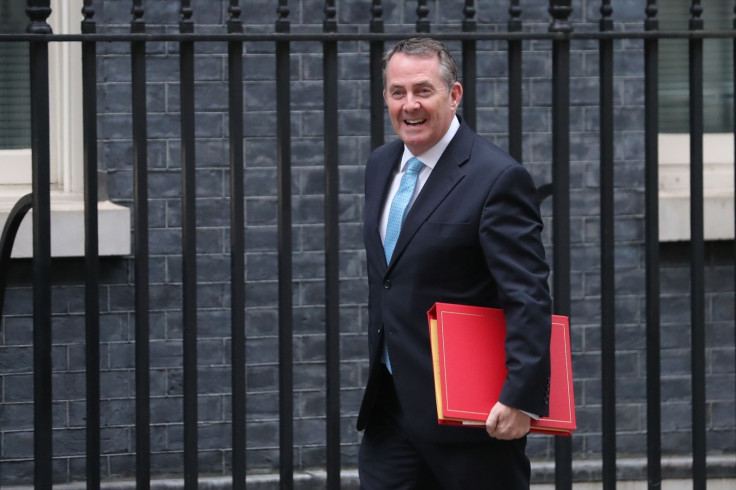Liam Fox warns EU leavers to accept soft Brexit and 'live with disappointment'
Liam Fox admits Tories will have to face up to softer Brexit.

The international trade secretary and one of the cabinet's leading Brexiteers has warned his supporters that they will not get the hard Brexit they want.
In an interview with the Sun, Liam Fox admitted that the hardcore group of around 30 Conservative Eurosceptics will have to face up to a softer Brexit.
In the interview, he called on the likes of Theresa Villiers and Jacob Rees-Mogg to call off their attacks on the chancellor Philip Hammond, who is seen as the staunchest supporter of a soft Brexit in the cabinet.
The divisions among the Conservatives have worsened in the past few days with Hammond's claim that there should only be "modest changes" to the relationship between Britain and the EU.
Fox said: "It doesn't help us for people to be involved in this sort of briefing they were over the weekend against individual colleagues because nothing that would happen would change the parliamentary arithmetic.
"We don't have a working majority, other than with the support of the Democratic Unionists, and we need to accept the reality of that. I know that there are always disappointed individuals but they're going to have to live with disappointment."
Fox's comments may only enrage Tories further. They are already at loggerheads over leaked papers that show that no matter what trade deal is reached after Brexit, the UK will be worse off.
Fox criticised Hammond as well as Boris Johnson for airing their Brexit positions in public. It was not "helpful" for the pair to "put their own positions before the government's interest and the national interest", he said.
Theresa May, who is out of the country on trade talks with China, is desperately trying to hold the Conservative party together as she prepares for the next stage of Brexit negotiations.
Rifts within her party have placed further pressure on her premiership even as she tries to send a united team to Brussels.
On Monday (29 January) Michel Barnier, the EU's chief Brexit negotiator, revealed that the transition period would end on 31 December 2020, several months earlier than May had hoped for.





















